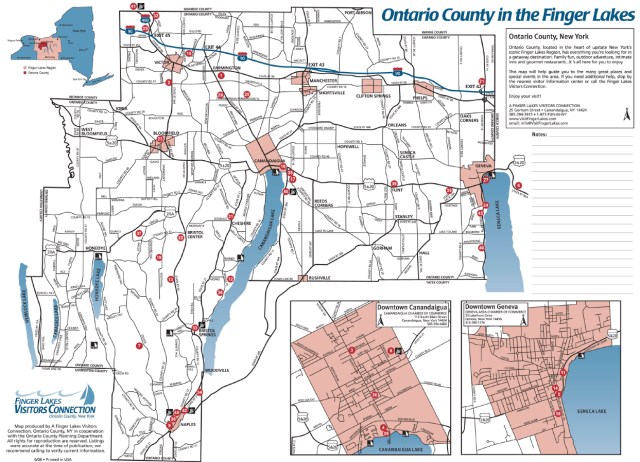
Seconds count. If your house was on fire, would you wait a minute or more for Time Warner to handle your 911 call?
Time Warner Cable’s digital phone service may be risking lives of the customers who use it to call 911 for emergency services.
That statement from Madison County, N.Y. 911 Director Paul Hartnett comes after the cable company bungled the handling of an emergency call reporting a house fire in the town of Clayton, Jefferson County, causing delays for emergency responders.
Even worse, the problems could be wider in scope, potentially putting many Time Warner Cable phone customers at risk of a delayed 911 response when seconds count.
At issue is an ongoing upgrade of the cable company’s E-911 database, begun after Time Warner dropped Sprint as their 911 vendor in favor of Intrado. As the slow upgrade continues, customers dialing 911 could end up having their calls routed to a national 911 call center Intrado runs in Colorado. The process often takes several minutes from the time the caller dials 911, someone in Colorado answers, and the call is eventually transferred back to the originating county, at which point the caller has to repeat information to a local 911 operator they could not reach directly.
Jefferson County’s 911 Director John Pumber told WSYR-TV news they first noticed the problems about a week ago. “I can see this thing escalating extremely fast, in talking to other cohorts around the state, some of the other centers, it’s becoming more and more of a problem,” he said.
Monday, a 911 call reporting a house fire in the Jefferson County town of Clayton was re-routed to the call center in Colorado. The call was eventually forwarded back to Jefferson County’s 911 center, 44 seconds later. By the time the nature of the emergency was given to the local operator, the house was fully involved in fire.
“If your house is on fire, and especially this individual was calling from his house, so we are leaving him in harms way to get the information and get him help [for] whatever the amount of time it took to get through the call center in Colorado and then through our procedures here,” said Plumber.
“Whether it’s medical, fire, law enforcement related – seconds do make a difference,” said Hartnett. “They’re putting public safety in jeopardy because they’re delaying calls. We’ve had medical calls, and other calls. We’ve dodged a bullet so far.”
This call, recorded by Madison County 911 last week, illustrates the problem:
911: Police communication?
Intrado: I’m calling from Intrado, a call center for Time Warner Cable, I have a subscriber on the line that dialed 911. They’re trying to get through to you, they have a medical emergency.
911: Okay, what’s the address madam?
Intrado: They need an ambulance at 4289 Canal Street.
911: Could I speak with them, or?
Intrado: You sure can, it’s going to be a female with difficulty breathing. Do you want their call back or mine?
911: If I’m going to talk to her, I’ll get it from her.
Intrado: You’re going to talk to her husband, his name is John. John your dispatcher is on the line.
911: Hi Sir, how are you?
Caller: Not good, you need to get a f***ing ambulance here right now!
 Time Warner Cable Regional Communications Manager Stephanie Salanger released a statement last week addressing the issue:
Time Warner Cable Regional Communications Manager Stephanie Salanger released a statement last week addressing the issue:
“TWC has deployed a state-of-the-art E-911 system that offers several key advantages over more traditional systems, including real-time address validation. Our solution complies fully with FCC rules and industry standards, and it also is based on the same technology the federal government is considering mandating for “Next Generation 911″ services, so we will be well-positioned to comply with any new rules as soon as new standards are implemented.
In the very rare cases where errors in routing 911 calls or when errors in the 911 address database occur-which happens from time to time under any 911 system-calls are routed to the Emergency Call Relay Center managed by TWC’s E911 partner in Colorado, rather than to the default or incorrect 911 answering location. This call center allows TWC to determine the customer’s location and route the call to the appropriate emergency answering center. This has happened only in a extremely small number of cases since TWC began transitioning to its new 911 system. TWC has been continually working with local 911 authorities to ensure they understand the details of TWC’s 911 system and will continue to do so.
TWC has always been and remains committed to providing the highest quality E-911 services for its customers. We will continue to work with local E-911 officials and agencies to ensure they are aware of, understand and are satisfied with TWC’s E-911 system and all of its functionalities.”
[flv width=”480″ height=”380″]http://www.phillipdampier.com/video/WSYR Syracuse TWC phone glitch delays emergency responses 1-4-11.flv[/flv]
WSYR-TV in Syracuse ran two reports over two nights documenting more than 40 recent incidents where Time Warner Cable dropped the ball in properly managing 911 calls from their customers. Warning: Loud Audio! (8 minutes)


 Subscribe
Subscribe









